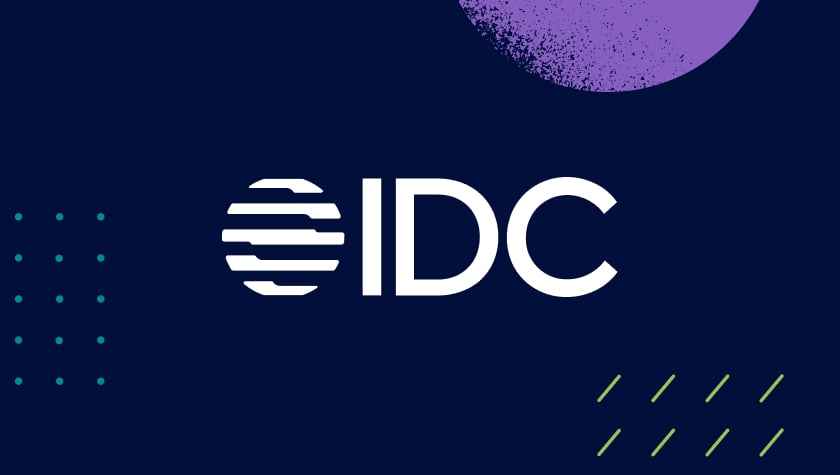
What do banks and financial institutions need to know about the Federal Reserve’s new rules? Read on to learn all things Reg II and prepare for the latest changes.
What is Reg II?
Regulation II or Reg II is the “Debit Card Interchange Fees and Routing” rule, or the Durbin Amendment.
Reg II is a provision of United States federal law that limits the fees that banks and financial institutions can charge merchants when consumers use their debit cards to make purchases.
Merchants and consumers were concerned they were footing the bill for processing fees for domestic US debit card transactions. In response, the new system was implemented in 2011.
Reg II sets the standards for debit card interchange fees charged by issuers. It also establishes rules for routing and exclusivity arrangements between issuers and payment card networks.
The regulation requires that interchange fees for debit card transactions be reasonable and proportional to the transaction’s cost. This means that the fees cannot be excessive or unfair. Reg II also limits the amount of interchange fees that issuers can charge.
In an effort to provide merchants with more choices, Reg II requires that merchants should have the option to route debit card transactions via a minimum of two unaffiliated debit card networks for processing. Merchants can now use multiple networks. This gives them more control over the fees they pay.
Reg II applies to issuers holding assets of $10 billion or more. It has had a significant impact on the debit card industry since its implementation in 2011.
4 Opportunities Reg II Creates for Acquiring Banks
Regulation II can create several opportunities for acquiring banks. These opportunities include:
- Greater merchant debit card adoption: Reg II could lead to increased merchant adoption of debit cards, as the interchange fees that issuers can charge for these transactions are limited. This could increase debit card transaction volume, providing more revenue opportunities for acquiring banks.
- Ability to offer more routing options: With the requirement for multiple routing options, acquiring banks may have the opportunity to offer additional routing options to merchants. This can provide a competitive advantage for acquiring banks that are able to offer routing options that other banks cannot.
- Improved merchant-acquiring bank relationships: Acquiring banks can improve their relationships with merchants by offering more routing options and providing merchants with more transparency into the fees and routing options associated with debit card transactions. This can lead to increased merchant loyalty and potentially more business opportunities.
- New revenue streams: The option to route payments through alternative, more affordable networks presents new revenue opportunities to acquiring banks. If acquirers automatically select the optimal network on behalf of the merchant, they increase the likelihood of transaction acceptance at a cheaper cost. In other words, smart routing opens new revenue streams.
What Recent Reg II Changes Mean
The Federal Reserve announced clarifications to Regulation II in October 2022. The rules went into effect on July 1, 2023. What does this mean for the industry?
Businesses typically used transaction fees to offset the costs of their technology stack. Not only to help process those transactions but also to cover additional services such as security and fraud prevention.
Meanwhile, the Federal Trade Commission (FTC) recently ruled that a major payment network had violated the Durbin Amendment by creating policies that prevented merchants from accessing alternative payment networks for eCommerce or card-not-present (CNP) transactions. The FTC’s ruling requires the card network to stop the practice and provide competing networks with the information they need to process debit card transactions.
How the Reg II Change Impacts Credit Unions
The FTC’s clarification means that card-not-present transactions should fall into the scope of the Durbin Amendment. Credit card issuers must comply with the changes.
Credit unions have been very vocal on this matter. So much so that the National Association of Federally-Insured Credit Unions actually asked for the clarification to be withdrawn over concerns that the clarification would negatively impact credit unions specifically.
Why are credit unions so concerned? Smaller debit networks don’t necessarily charge the fees that larger networks charge today. This puts the burden on credit unions to perform greater security checks or fraud prevention checks because smaller debit networks don’t necessarily have the same levels of fraud protection available.
So not only are credit unions or card issuers receiving lower fees for processing card transactions for their customers. They potentially have to spend more money on fraud prevention tools.
Reg II Clauses Concerning Unaffiliated Networks
One of the clauses included in Reg II is that a card issuer needs to give a merchant a minimum of two unaffiliated networks in which to process their debit card transactions.
Signature networks include Visa, MasterCard, and Discover today. The reality is that all three of those players also own some of the local debit card networks as well. A great example is that Visa also owns Interlink. So an issuer can’t offer a merchant the ability to process using Visa Signature rails and also the Interlink rails. It has to be a completely unaffiliated network.
Benefits and Opportunities of Reg II
Benefits of Reg II are really for regional, local, and smaller debit networks to actually start offering value-added services (VAS) and additional fraud prevention services to give greater insights to card issuers.
Reg II also offers a good opportunity for card issuers themselves to look at their current systems and decide whether or not existing systems can be enhanced by utilizing more machine learning AI technology to remove a large number of the manual processes that they may have today as part of their risk strategies.
With the new clarification regarding Regulation II, there’s speculation in the market that we could soon see a move that covers credit cards too. Sen. Richard Durbin, for whom the Durbin Amendment is named, recently re-introduced a bill that would apply much of the same rules faced by debit cards to credit card companies (Congress adjourned without taking action on the original).
While the new bill, known as the Credit Card Competition Act of 2023, has increased bipartisan support, even its backers acknowledge it will be challenging to get it passed.
Share this article:
James Hunt
James Hunt has over 20 years of experience preventing payment fraud across banking, eCommerce, and payment service providers, specializing in creating, leading, and refining fraud prevention teams. Believing that fraud and risk teams should be an enabler of business and not a bottleneck, he’s consulted with some of the world's largest global brands. Prior to joining Feedzai, James held positions at NatWest, GoCardless, and Visa.
Related Posts
0 Comments6 Minutes
A Guide to Secure, Seamless User Authentication in Payments
Online payments demand a delicate balance between security and user experience. Consumers…
0 Comments7 Minutes
Combating Emerging Scams in the Philippines
The Philippines is witnessing remarkable growth in digital banking. Unfortunately, a…
0 Comments5 Minutes
Feedzai is a Leader in the 2024 IDC MarketScape for Enterprise Fraud Solutions
Exciting news! Feedzai, the world’s first RiskOps platform, is proud to have been named a…


